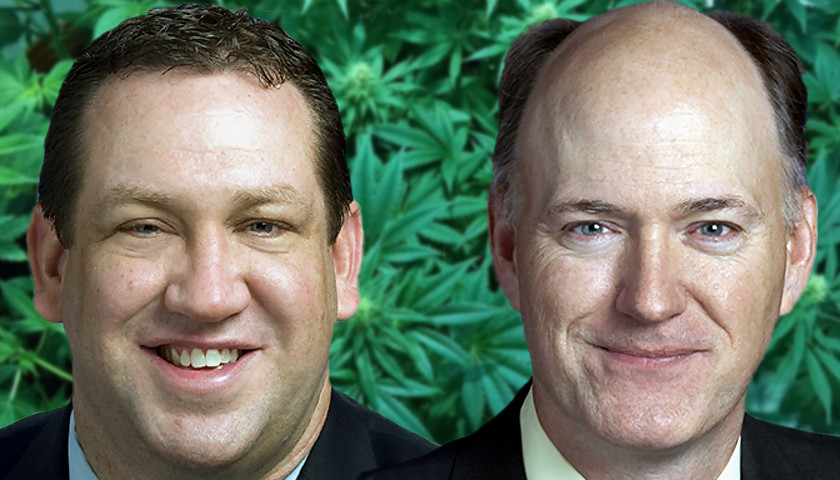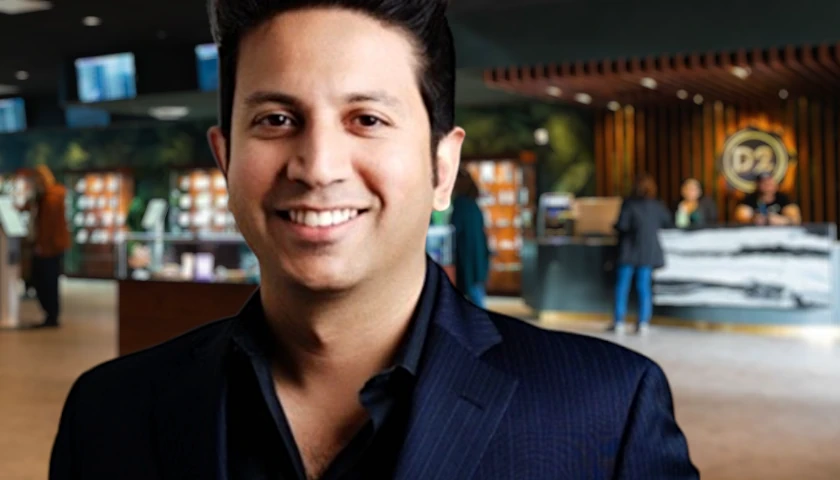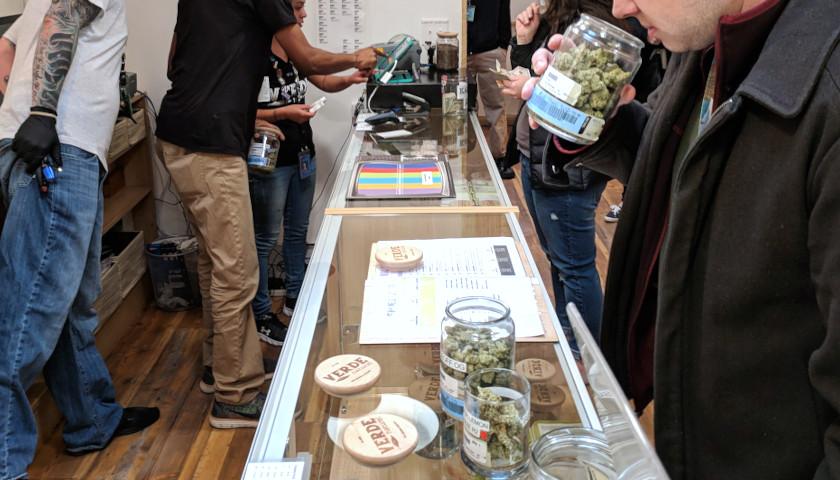Much to the delight of the pro-pot activist base, Tennessee State Sen. Steven Dickerson (R-Nashville) and State Rep. Jeremy Faison (R-Cosby) introduced a controversial measure Thursday that seeks to legalize a certain form of marijuana to be used for medical purposes, dubbed, “Medical Cannabis Only Act of 2018” (SB1710).
The Nashville Business Journal reports that the Act requires several safeguards to closely monitor and restrict the manufacture, distribution, prescription, and dispensing of the drug:
According to the bill, an electronic verification system would be established through which qualifying patients would receive a registration identification card. Using card readers, cannabis establishments and law enforcement would be able see, in real time, how much cannabis the patient was allowed to purchase, as well as when and where the purchase occurred. Once reaching their dosage per month, the patient would not be able to use the card for the remainder of the time. If a patient possessed more than the dosage amount, criminal drug possession laws would then apply.
Furthermore, the Act empowers counties to opt-out from allowing dispensaries to operate in their jurisdictions, and for those counties that do, local governments may choose – through a local referendum – to allow (or not) dispensaries.
The Journal reports the legislation is narrowly tailored to only permit the use of cannabis oil and oil-based products to a restricted list of patients with certain ailments, including cancer, HIV/AIDS, Hepatitis C, ALS, PTSD, Alzheimer’s, severe arthritis, inflammatory bowel disease (including Crohn’s disease and ulcerative colitis), multiple sclerosis, Parkinson’s and schizophrenia.
As for oversight and administration, the Act establishes a nine-member Tennessee Medical Cannabis Commission (TMCC), funded by license and application fees,and comprised of appointees by the from the governor, lieutenant governor and Speaker of the House. Qualified Commission candidates would be subject matter experts such as doctors, pharmacists, law enforcement officials, educators and patient advocates. Additionally, prospective Medical Cannabis Commissioners would be have to exceed 30 years old and be a resident of Tennessee for at least five years. At least one of the nine-member body would have to be at least 60 years old, and at least one would have to be a racial minority.
The TMCC’s duties would include issuing all licenses – including qualifying physicians, pharmacists, laboratories and other businesses – as well as registration cards to patients. They would also be responsible for conducting continuing education, establishing dosing standards and possibly facilitating research and sponsoring clinical trials in cooperation with higher education facilities and authorized vendors, the Journal reports.






I didn’t think any self respecting Republican supported The Devil’s Lettuce…civilization will most certainly devolve into anarchy if this passes!!
“If people cannot be trusted with freedom, how can people be trusted with power?”
I think the bill is a good place to start. No legislation on any topic is perfect, and to think we have to have legislation on this topic is ridiculous. Plenty of research shows the medical efficacy of this product.
I wholeheartedly believe that anyone who is against the medical use of this product is wilfully ignorant and refuses to research the topic with an open mind.
It appears to me the people so against it are of the opinion that the great and omnipotent government knows best, and we should just continue this failed war on drugs that for decades has wasted money and saddled people in lower economic statuses with an anchor that prevents a real opportunity to be successful members of society.
Where’s the “Medical Laundry Soap -Pod Act of 2018”? Just because a lot of people are doing it doesn’t mean it’s good for you.
I expect more from my State Representatives than the idea that these two Gentlemen are offering–and if approved, one from a city that I would expect to be a major user of ‘pot’ (and maybe hope to ‘profit’ from the tax revenue generated from it) and the other from an area that I would expect to be a major producer of ‘pot’ (and probably is so now).
Everyone has heard the old adage about the camel that first stuck his nose under a man’s tent, and then before you knew it, the camel was in the tent and the man was outside of the tent.
If Tennessee approves ‘pot’ (in any way), then in time (and probably not very much time) expect deaths from increased ‘pot’ use to rise (from increased automobile DUI accidents, if from nothing else), expect the social services financial costs to greatly rise for both the State and for our local governments, and generally, just expect the quality of life for ALL of Tennessee’s citizens to fall as our communities decline from overall increased drug use therein.
Medical marijuana for Tennessee is A VERY BAD IDEA! KILL IT IN THE CRIB! If I were a State Representative, I would not want such a ‘foul deed’ on my conscience from having voted for the same!.
Wake up dumb . A day will come when you will suffer from an illness or disease you have no control over and and nothing else will get you relief.
If I trusted our politicians more I would be favor this initiative based on what they tell us. I don’t trust hem enough for this move. All I see are graft and corruption opportunities for our elected officials as they move next to legalize smoking marijuana. Like Mayor Berry’s light rail system boondoggle. Follow the money and you see that helping folks is just not on their agenda. Who needs Democrats when you have Republicans like these folks?
Here we go again. Implementing this policy would place additional financial burden on the state. And, frankly, who in their right mind believes that the proposed controls would work in the real world? All one must do is consider the current mess with legal use of opioids. Would it too cynical to suggest that this would be the first step toward “recreational” use and all of the tax revenues that would bring? Might there be a hidden motive or two here? Just asking.